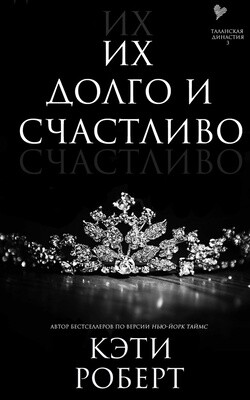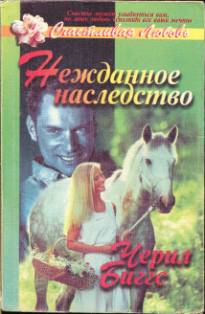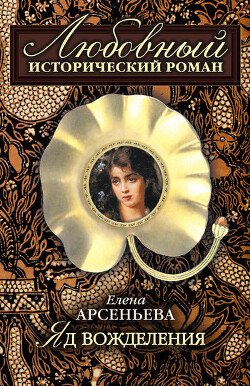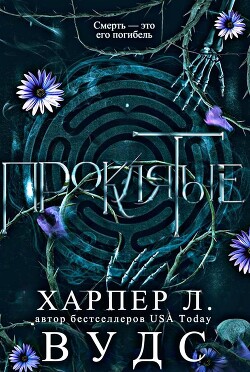Карен Армстронг - Поля крови. Религия и история насилия
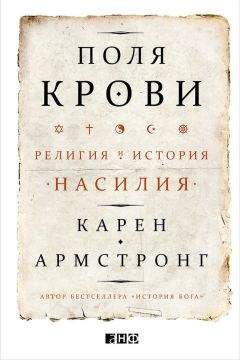
Помощь проекту
Поля крови. Религия и история насилия читать книгу онлайн
1065
Ibid., 2, pp. 334–60
1066
John H. Kautsky, The Politics of the Aristocratic Empire, 2nd ed. (New Brunswick and London, 1997), p. 146
1067
Perry Anderson, Lineages of the Absolutist State (London, 1974), p. 505
1068
Fernandez-Armesto, 1492, pp. 2–4
1069
Timothy H. Parsons, The Rule of Empires: Those Who Built Them, Those Who Endured Them, and Why They Always Fail (Oxford, 2010), p. 117; Peter Jay, Road to Riches or The Wealth of Man (London, 2000), p. 147.
1070
Jay, Road to Riches, p. 151
1071
Ibid., pp. 152–53
1072
Henry Kamen, Empire: How Spain Became a World Power, 1492–1763 (New York, 2003), p. 83
1073
Howard Zinn, A People’s History of the United States: From 1492 to the Present, 2nd ed. (New York, 1996), p. 11 (Говард Зинн. Народная история США. – М.: Весь мир, 2006.)
1074
Massimo Livi-Bacci, A Concise History of World Population (Oxford, 1997), pp. 56–59 (Ливи-Баччи М. Демографическая история Европы. – Рязань: Александрия, 2010.)
1075
Parsons, Rule of Empires, p. 121
1076
Ibid., p. 117
1077
Jay, Road to Riches, p. 150
1078
Mark Levene, Genocide in the Age of the Nation-State: The Rise of the West and the Coming of Genocide (London and New York, 2005), pp. 15–29
1079
Каэтан, На «Вторую часть второй части» Аквината, вопрос 66, пункт 8; см.: Richard Tuck, The Rights of War and Peace: Political Thought and the International Order from Grotius to Kant (Oxford, 1999), p. 70
1080
Francisco de Vitoria, Political Writings, ed. Anthony Pagden and Jeremy Lawrence (Cambridge, 1991), pp. 225–26
1081
Thomas More, Utopia, ed. George M. Logan and Robert M. Adams (Cambridge, 1989), pp. 89–90. [Перевод А. Малеина и Ф. Петровского. Здесь и далее Цит. по: Мор Т. Утопия. – М.: Издательство Академии наук СССР, 1953. – Прим. пер.]
1082
Ibid., p. 58
1083
Ibid.
1084
Tuck, Rights of War and Peace, p. 15. Макс Вебер высказывал аналогичную мысль в 1906 году; см.: H. H. Gerth and C. Wright Mills, trans. and ed., From Max Weber (London, 1948), pp. 71–72
1085
Отрывок из Тацита цитируется в сочинении Джентили «О праве войны»; см.: Gentili, The Rights of War and Peace, in Three Books (London, 1738), 2.2.17; Tuck, Rights of War and Peace, pp. 47–48
1086
Аристотель, Политика, 1256; см.: Richard McKeon, ed., The Basic Works of Aristotle (New York, 1941). [Перевод С. Жебелева. Цит. по: Аристотель. Сочинения: в 4 томах. Том 4. – М.: Мысль, 1983. – Прим. пер.]
1087
Henry Kamen, The Spanish Inquisition: An Historical Revision (London, 1997), pp. 45, 68, 137
1088
Paul Johnson, A History of the Jews (London, 1987), pp. 225–29.
1089
Haim Beinart, Conversos on Trial: The Inquisition in Ciudad Real (Jerusalem, 1981), pp. 3–6
1090
Norman Roth, Conversos, Inquisition and the Expulsion of Jews from Spain (Madison, 1995), pp. 283–84.
1091
Ibid., p. 19
1092
Fernández-Armesto, 1492, pp. 94–96
1093
Johnson, History of the Jews, p. 229; Yirmiyahu Yovel, Spinoza and Other Heretics: I. The Marrano of Reason (Princeton, NJ, 1989), pp. 17–18
1094
Johnson, History of the Jews, pp. 225–29
1095
Kamen, Spanish Inquisition, pp. 57–59; William Monter, Frontiers of Heresy: The Spanish Inquisition from the Basque Lands to Sicily (Cambridge, UK, 1990), p. 53
1096
Kamen, Spanish Inquisition, p. 69
1097
Robin Briggs, ‘Embattled Faiths: Religion and Natural Philosophy’, in Euan Cameron, ed., Early Modern Europe: An Oxford History (Oxford, 1999), pp. 197–205
1098
Jay, Road to Riches, pp. 160–63
1099
Henri Pirenne, Medieval Cities: Their Origins and the Revival of Trade (Princeton, 1946), pp. 168–212; Bert F. Hoselitz, Sociological Aspects of Economic Growth (New York, 1960), pp. 163–72
1100
Norman Cohn, Pursuit of the Millennium: Revolutionary Millenarians and Mystical Anarchists of the Middle Ages (London, 1984 ed.) pp. 107–16
1101
Euan Cameron, ‘The Power of the Word: Renaissance and Reformation’, in Cameron, Early Modern Europe, pp. 87–90
1102
Richard Marius, Martin Luther: The Christian between God and Death (Cambridge, Mass., and London, 1999), pp. 73–74, 214–15, 486–87
1103
Joshua Mitchell, Not By Reason Alone: History and Identity in Early Modern Political Thought (Chicago, 1993), pp. 23–30
1104
Martin Luther, ‘Temporal Authority: To What Extent It Should Be Obeyed’, trans. J. J. Schindel, revised by Walther I. Brandt in J. M. Porter, ed., Luther: Selected Political Writings (SPW) (Eugene, Oreg., 2003), p. 54
1105
Ibid., p. 55
1106
Ibid.
1107
Ibid., p. 56
1108
Martin Luther, ‘Whether Soldiers, Too, Can Be Saved’, trans. Charles M. Jacobs, revised by Robert C. Schultz in SPW, p. 108
1109
J. W. Allen, A History of Political Thought in the Sixteenth Century (London, 1928), p. 16; Sheldon S. Wolin, Politics and Vision: Continuity and Innovation in Western Political Thought (Boston, 1960), p. 164
1110
Cohn, Pursuit of the Millennium, pp. 245–50
1111
Martin Luther, ‘Admonition to Peace: A Reply to the Twelve Articles of the Peasants in Swabia’ (1525), trans. J. J. Schindel, revised by Walther I. Brandt, in SPW, p. 72
1112
Ibid., p. 78
1113
Ibid., p. 82
1114
Martin Luther, ‘Against the Robbing and Murdering Hordes of Peasants’ (1525), trans. Charles M. Jacobs, revised by Robert C. Schultz in SPW, p. 86
1115
Steven Ozment, The Reformation of the Cities: The Appeal of Protestantism to Sixteenth Century Germany and Switzerland (New Haven, 1975), pp. 10–11, 123–25, 148–50
1116
Charles A. McDaniel, Jr., ‘Violent Yearnings for the Kingdom of God: Münster’s Militant Anabaptism’, in James K. Wellman, ed., Belief and Bloodshed: Religion and Violence across Time and Tradition (Lanham, Md., 2007), p. 74. Социальная опасность сохранялась, хотя в последние дни мюнстерских анабаптистов их вождь Иоанн Лейденский стал называть себя королем, устроил псевдоимперский двор и прибегал к крутым мерам.
1117
Cohn, Pursuit of the Millennium, pp. 255–79
1118
Я подробно обсуждала это в книге: The Case for God (London and New York, 2009) (Армстронг К. Биография Бога. Все, что человечество успело узнать. – М.: Эксмо, 2012.). См. также: Wilfred Cantwell Smith, The Meaning and End of Religion: A New Approach to the Religious Traditions of Mankind (New York, 1962); Belief in History (Charlottesville, Va., 1985); Faith and Belief (Princeton, NJ, 1987)
1119
William T. Cavanaugh, The Myth of Religious Violence (Oxford, 2009), pp. 72–74
1120
Thomas More, A Dialogue Concerning Heresies, ed. Thomas M. C. Lawlor (New Haven, 1981), p. 416
1121
François-André Isambert, ed., Recueil général des anciennes lois françaises depuis l’an 420 jusqu’à la Révolution de 1789 (Paris, 1821–33), 12, p. 819
1122
Brad S. Gregory, Salvation at Stake: Christian Martyrdom in Early Modern Europe (Cambridge, Mass., and London, 1999), p. 201
1123
Raymund F. Mentzer, Heresy Proceedings in Languedoc, 1500–1560 (Philadelphia, 1984), p. 172
1124
Philip Spierenberg, The Spectacle of Suffering: Executions and the Evolution of Repression: From a Pre-Industrial Metropolis to the European Experience (Cambridge, UK, 1984); Lionello Puppi, Torment in Art: Pain, Violence and Martyrdom (New York, 1991), pp. 11–69
1125
Gregory, Salvation at Stake, pp. 77–79
1126
David Nicholls, ‘The Theatre of Martyrdom in the French Reformation’, Past and Present, 121 (1998); Susan Brigdon, London and the Reformation (Oxford, 1989), p. 607; Mentzer, Heresy Proceedings, p. 71
1127
Gregory, Salvation at Stake, pp. 80–81
1128
Втор. 13:1–3, 5, 6–11 цитируется Иоганном Экком в «Учебнике общих положений» (1525), а также Кальвином в оправдание казни антитринитария Мигеля Сервета
1129
Gregory, Salvation at Stake, pp. 84–87
1130
Ibid., pp. 111, 154
1131
Ibid., pp. 261–69
1132
Allen, Apologie of the English College (Douai, 1581); Gregory, Salvation at Stake, p. 283
1133
Gregory, Salvation at Stake, pp. 285–86
1134
Kamen, Spanish Inquisition, pp. 204–13
1135
Ibid., p. 203
1136
Ibid., p. 98
1137
Ibid., pp. 223–45
1138
Ibid.
1139
Cavanaugh, Myth of Religious Violence, p. 122
1140
J. V. Poliskensky, War and Society in Europe, 1618–1848 (Cambridge, 1978), pp. 77, 154, 217
1141
Cavanaugh, Myth of Religious Violence, pp. 142–55
1142
Richard S. Dunn, The Age of Religious Wars, 1559–1689 (New York, 1970), p. 6 (Данн Р. Эпоха религиозных войн. – М.: Центрополиграф, 2011.); James D. Tracy, Charles V, Impresario of War: Campaign Strategy, International Finance, and Domestic Politics (Cambridge, 2002), pp. 45–47, 306
1143
William Blockmans, Emperor Charles V, 1500–1558 (London and New York, 2002), pp. 95, 110; William Maltby, The Reign of Charles V (New York, 2002), pp. 112–13
1144
Tracy, Charles V, p. 307; Blockmans, Emperor Charles V, p. 47
1145
Klaus Jaitner, ‘The Pope and the Struggle for Power during the Sixteenth and Seventeenth Centuries’, in Klaus Bussman and Heinz Schilling, eds, War and Peace in Europe, 3 vols (Münster, 1998), 1, p. 62
1146
Maltby, Reign of Charles V, p. 62; Tracy, Charles V, pp. 209–15
1147
Tracy, Charles V, pp. 32–34; 46














